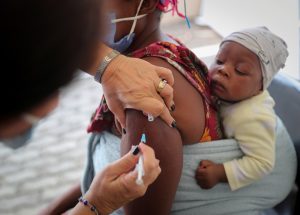Public-Private Partnerships Redraw Africa’s Healthcare Map

In the bustling corridors of Lagos University Teaching Hospital (LUTH), a new cancer center gleams as a symbol of what happens when the public and private sectors join forces. Only a few years ago, many Nigerian patients with advanced cancers faced the grim reality of traveling abroad, at great cost for treatment. Today, the LUTH Cancer Centre, funded and operated through a public-private-partnership (PPP), delivers world-class radiotherapy and oncology services at home.
![]()
This model of collaboration, combining government oversight with private investment, is quietly reshaping how healthcare is delivered across Africa. To African governments, PPPs bring much-needed infrastructure and systems, while for businesses, they open up sustainable markets; and to families they promise something more profound, with access to care that can save lives.
Africa faces some of the steepest healthcare challenges globally: limited infrastructure, shortages of trained staff, and fragile supply chains. While public health systems have long carried the burden, fiscal constraints mean governments often cannot go it alone.
Enter PPPs. By allowing private players to co-invest in healthcare delivery, governments leverage not just capital but also operational expertise and technology. From financing new hospitals to rolling out maternal health initiatives, PPPs have become a strategic answer to pressing health gaps.

For investors, the opportunity is significant. Healthcare in Africa is projected to grow into a multi-billion-dollar industry, driven by a young population and rising demand. But the investment case is strongest when risk-sharing frameworks like PPPs align commercial viability with public health goals.
According to a financing consultant in Nairobi. “PPPs are about building ecosystems where both patients and investors benefit. The public sector sets the guardrails and the private sector innovates within them.”
Behind the balance sheets and contracts are human stories. In rural Malawi, for instance, private partners working alongside the Ministry of Health have extended primary healthcare services into hard-to-reach communities, helping women deliver safely and reducing preventable deaths.
In Kenya, PPP-support of maternal health programs have expanded access to skilled birth attendants, while in Tanzania and Uganda, similar collaborations have boosted HIV/AIDS treatment and helped address chronic staff shortages. Families in this region gain the tangible the impact, because it engenders reduced travel times, lower out-of-pocket costs and grant a chance to access treatments once thought unattainable. PPP-backed insurance schemes are also beginning to ease financial barriers, reducing the risk of catastrophic health spending that can plunge households into poverty.
The COVID-19 pandemic underscored the importance of resilient supply chains. Across Africa, PPPs are increasingly being used to strengthen pharmaceutical distribution and medical logistics. Private sector efficiency ensures that essential medicines reach clinics, even in remote regions, while governments retain oversight to safeguard equity.

Technology is another area where partnerships shine. From digital health platforms that enable remote consultations to diagnostic tools that improve accuracy, private innovation is enhancing service delivery at scale.
Yet the model is not without hurdles. Financing remains complex, particularly in low-income countries where patient volumes may not guarantee profitability. Regulatory uncertainty can also discourage private investors. And, at times, misalignment of public and private interests has led to stalled projects or concerns over affordability.
Experts argue that success depends on strong governance. Clear regulatory frameworks, open communication, and transparent contracts are critical for building trust. Sustained political will is also essential to ensure continuity beyond electoral cycles.
“There’s always a risk that PPPs tilt too far toward profit or politics,” notes a health systems researcher in Dar es Salaam. “The challenge is to strike a balance where patients are not left behind.”

As Africa’s health needs grow more urgent, PPPs are increasingly being seen not just as stopgap solutions but as long-term strategies for system transformation. Investors, governments and civil society alike recognize that the future of African healthcare may well hinge on how effectively these partnerships can scale; and whether they can keep patients at the center.
To a cancer patient in Lagos, it spares the cost of a flight to London; even to a mother in rural Malawi who can deliver her baby safely, the impact is already clear. These partnerships on paper, are translating into healthier lives.






